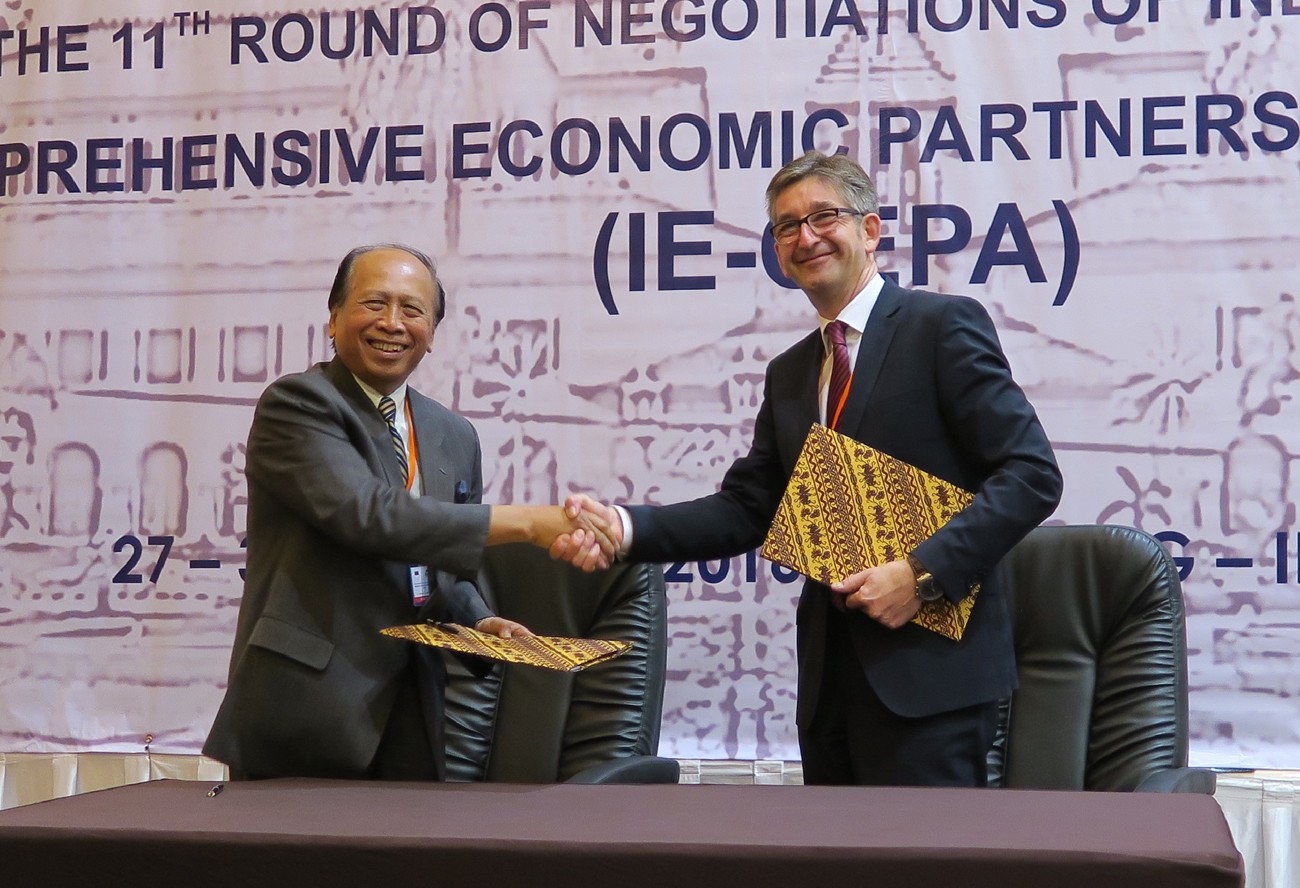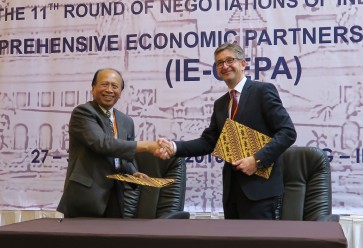Popular Reads
Top Results
Can't find what you're looking for?
View all search resultsPopular Reads
Top Results
Can't find what you're looking for?
View all search resultsIndonesia-EFTA: Step toward Euro market
After almost eight years since the first round the negotiations started in January 2011, the Indonesia-EFTA Comprehensive Economic Partnership Agreement (CEPA) concluded in November 2018 and was signed in Jakarta on Dec. 16.
Change text size
Gift Premium Articles
to Anyone
A
fter almost eight years since the first round the negotiations started in January 2011, the Indonesia-EFTA Comprehensive Economic Partnership Agreement (CEPA) concluded in November 2018 and was signed in Jakarta on Dec. 16.
The European Free Trade Association (EFTA) comprises Switzerland, Norway, Liechtenstein and Iceland. All four member states participate in the European Single Market and are also part of the Schengen Area. However, EFTA countries are not members of the European Union Customs Union.
The Indonesia-EFTA CEPA covers trade in goods and services, investment, government procurement, rules of origin and trade facilitation, the TBT and SPS, trade remedies, intellectual property rights (IPR), trade and Sustainable Development Goals, cooperation and capacity building, competition and legal matters.
The main challenges in the negotiations were issues like palm oil and movement of natural persons for Indonesia, fisheries market access for Norway and IPR for Switzerland, which were all eventually resolved in a win-win solution for all countries, which agreed to provide preferential treatment on these issues.


















